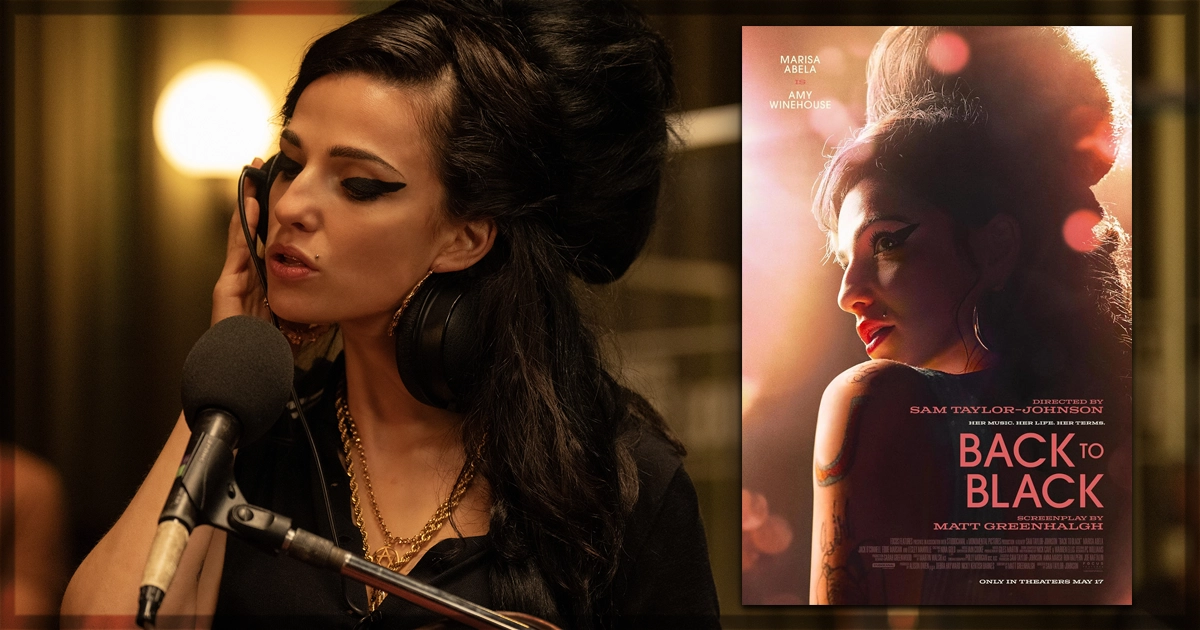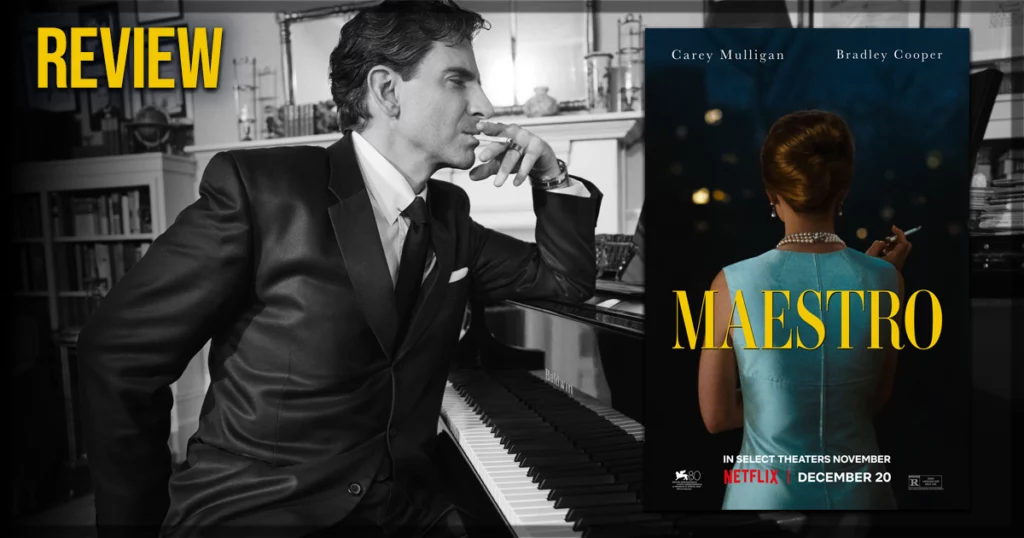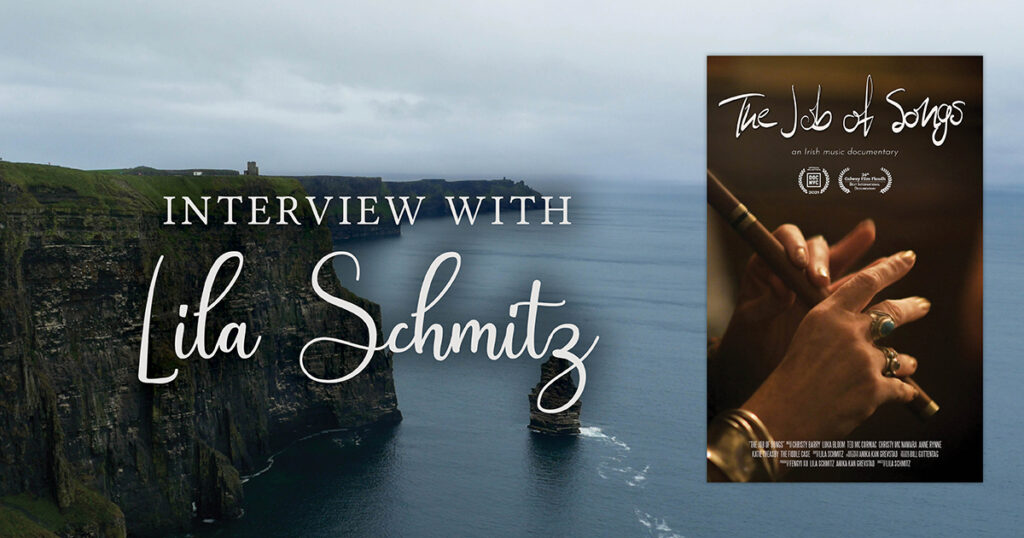Amy Winehouse was arguably one of the greatest singers of the 21st century. Her remarkable voice, combined with her ability to tap into emotional authenticity, made her a force to be reckoned with in the modern music scene. At 27 years old, she left this world far too soon, leaving behind a lasting legacy brimming with sublime music despite the tragedy of her departure. It is, therefore, a shame that director Sam Taylor-Johnson’s biopic of the London songstress, Back to Black, reduces her life into a hackneyed melodrama.
Marisa Abela of the TV series Industry portrays the Camden-based singer in this new feature film. She starts as an ordinary 18-year-old Londoner. Her nights are spent going out to party and drink excessively, coming home to a sharp but loving grandmother, Cynthia (Lesley Manville), and a guitar for her to make music and fine-tune her vocal capabilities. The film details her breakthrough moment through her demo, where she performs an average song but elevates its power through her immaculate voice. As she navigates her newfound success, her chance meeting with a potential romantic partner, Blake (Jack O’Connell), introduces her to the world of drugs on top of her rampant alcohol consumption. Thus, the rise of her career becomes intertwined with her struggle with addiction, a struggle that would sadly win in the end.
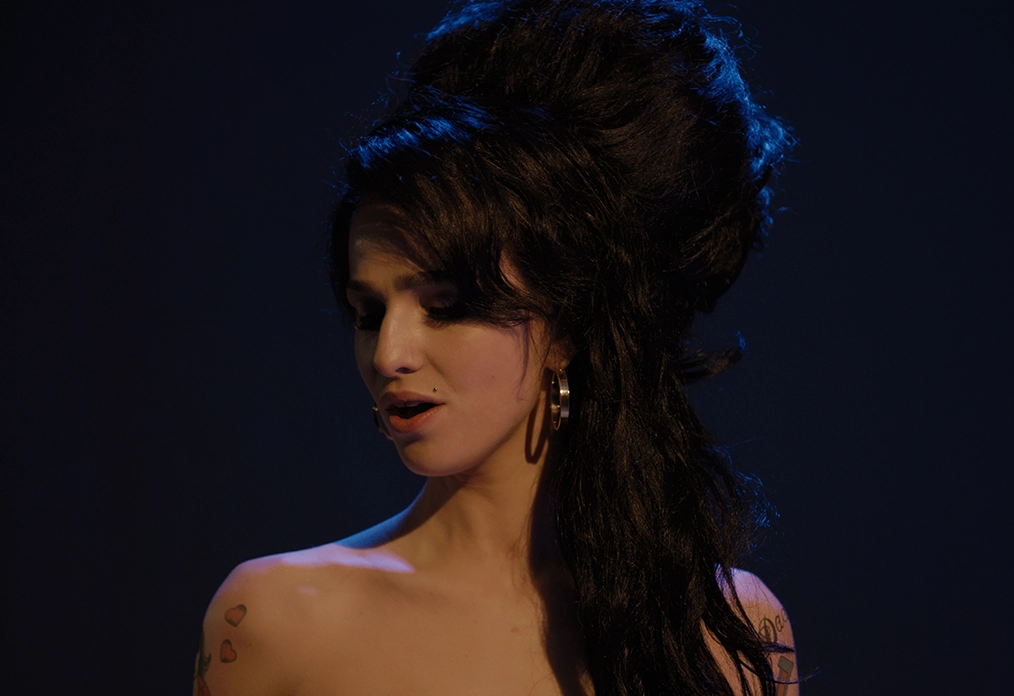
Back to Black Sanitizes Amy Winehouse’s Story
Winehouse was a complicated woman who lived to sing and play music. She had a zest for life and human connection that came across in her songs, such as in the song that this film is named after, where she described the emptiness that comes from a breakup. Taylor-Johnson’s Back to Black seems to be making the argument that it was Winehouse’s constant desire for fun that led her down the path of addiction that ultimately ended her life. There’s perhaps a touch of truth in that, but that peer pressure and incessant attention from parasitic paparazzi was undoubtedly a factor too, something the film struggles to intersect with. It is in these omissions that this biopic’s aggressively sanitized nature comes to the foreground.
Perhaps the most glaring omission is the toxic dynamic between her and her father, Mitch (Eddie Marsan). Mitch is portrayed here as a clear-cut, wonderful father who, despite making mistakes with his marriage, always had his daughter’s best intentions at heart. This is in opposition to various sources and video footage that is showcased in other films and news stories, in which he, and to an extent Winehouse’s mother (Juliet Cown), seemed neglectful rather than unconditionally loving.
If anything, he seemed more prone to exploiting his daughter’s success for his own ends. Actions such as bringing along camera crews against his daughter’s wishes and chastising her for not always being up for interacting with fans seem to corroborate this. It’s hard to doubt that Mitch loved his daughter, but he and others seem complicit in a lot of Winehouse’s struggles. By overlooking this, Back to Black is trading in nuanced conflict for by-the-numbers half-truths. At best, it’s uninspired, but at its cynical worst, it’s a deeply problematic portrayal that borders on revisionism.
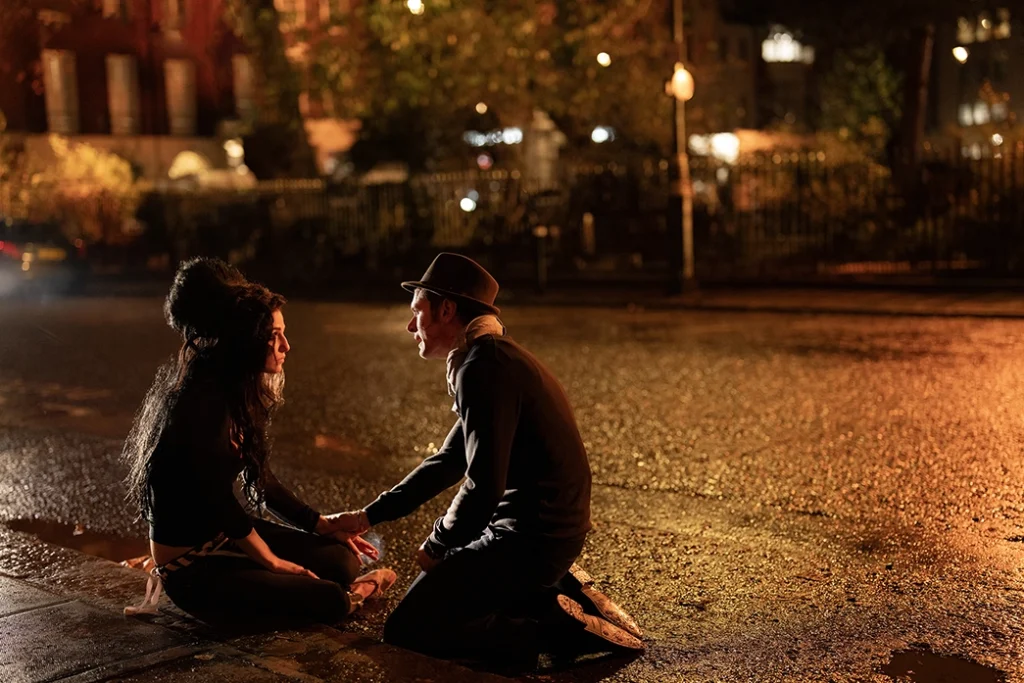
Abela delivers Back to Black’s best performance
Taylor-Johnson’s direction does capture the appeal of Winehouse’s songs well enough, such as utilizing visuals of Blake going about his life merrily while Winehouse sings about the void he has left behind in an empty booth. Abela is genuinely singing throughout the film, and her voice stellarly captures what made Winehouse a singular talent. Twinned with her wit, sarcasm, and veiled vulnerability, Abela comfortably delivers the film’s best performance.
Sadly, this wasn’t a difficult feat to achieve as the supporting players are written as one-dimensional points of reference. Whether it’s her father’s bland nice guy act, her grandmother’s loving persona – somewhat undercut by a ridiculous tone-deaf scene in which she casually drops her cancer diagnosis on a park bench – or her mother, who doesn’t even appear in enough of the film to leave an impression, Back to Black seems woefully uninterested in the key players of Winehouse’s story, beyond Winehouse herself.
The script is the fundamental problem. Despite the film’s infrequent strengths of Abela’s performance or silent moments of mise-en-scene – such as a particularly striking visual where dozens of empty bottles hauntingly showcase the extent of Winehouse’s addiction – the script assumes the identity of a typical Hollywood biopic. Relationships come and go, the power of love is reiterated constantly, and complexity is substituted for on-the-nose dialogue and an addiction conflict that goes round in circles. It’s a film that tells a unique story in the most boring way, becoming completely indistinguishable from any other film about a singer with addiction issues. It’s not just a disservice to Winehouse and her legacy – it’s a disservice to compelling storytelling.
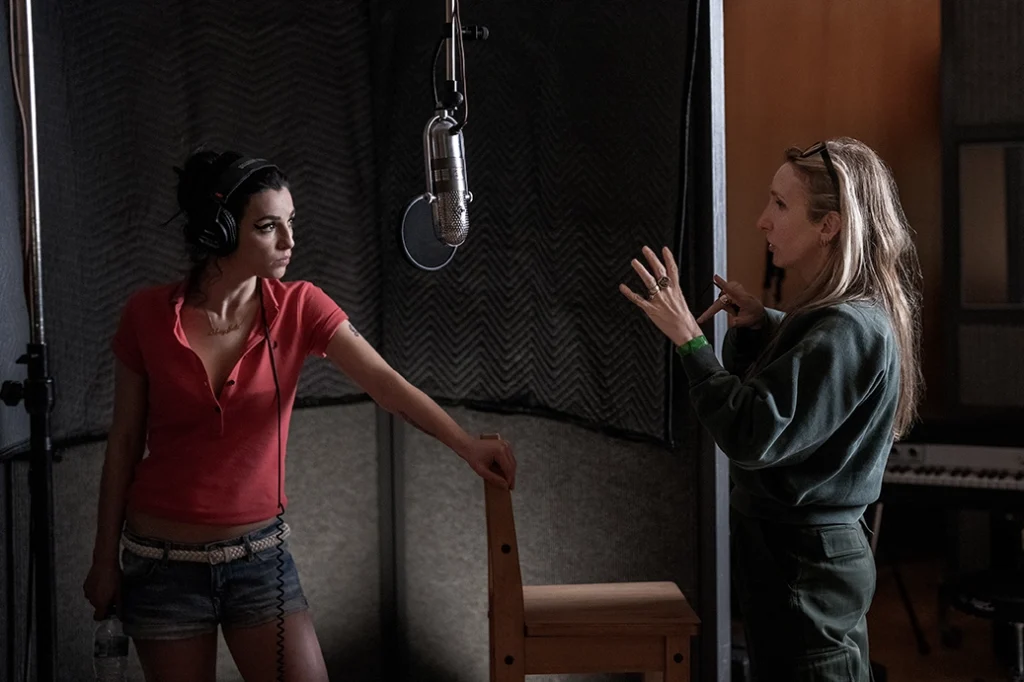
Amy Winehouse – Better Portrayed in Amy Documentary
French New Wave director Jean-Luc Godard once said, “The way to criticize a film is to make another film”. It’s a quote that’s been employed by critics before, such as when Siskel and Ebert used the brilliant Say Anything as an incantation against the putrid She’s Out of Control. As it happens, such a counter to Back to Black already exists – Asif Kapadia’s 2015 documentary Amy. Using archival footage from Winehouse’s home videos and hundreds of interviews with her family and friends, Amy is a mesmerizing documentary that beautifully tells Winehouse’s story using her own voice, capturing a sobering portrait of a struggling woman with an unparalleled talent. It is genuine, riveting, and determined to understand Winehouse as a person – all the things this new film isn’t.
With Kapadia’s Amy already telling Winehouse’s story, Back to Black turning a blind eye to truth and nuance for vacuous dramatics leaves a sour taste and an overwhelming sense of pity in Taylor-Johnson’s decision to favor watered-down cliches over sincerity.
Back to Black will be in US theaters on May 17, 2024.
Learn more about the film, including how to get tickets, at the Focus Features website.

